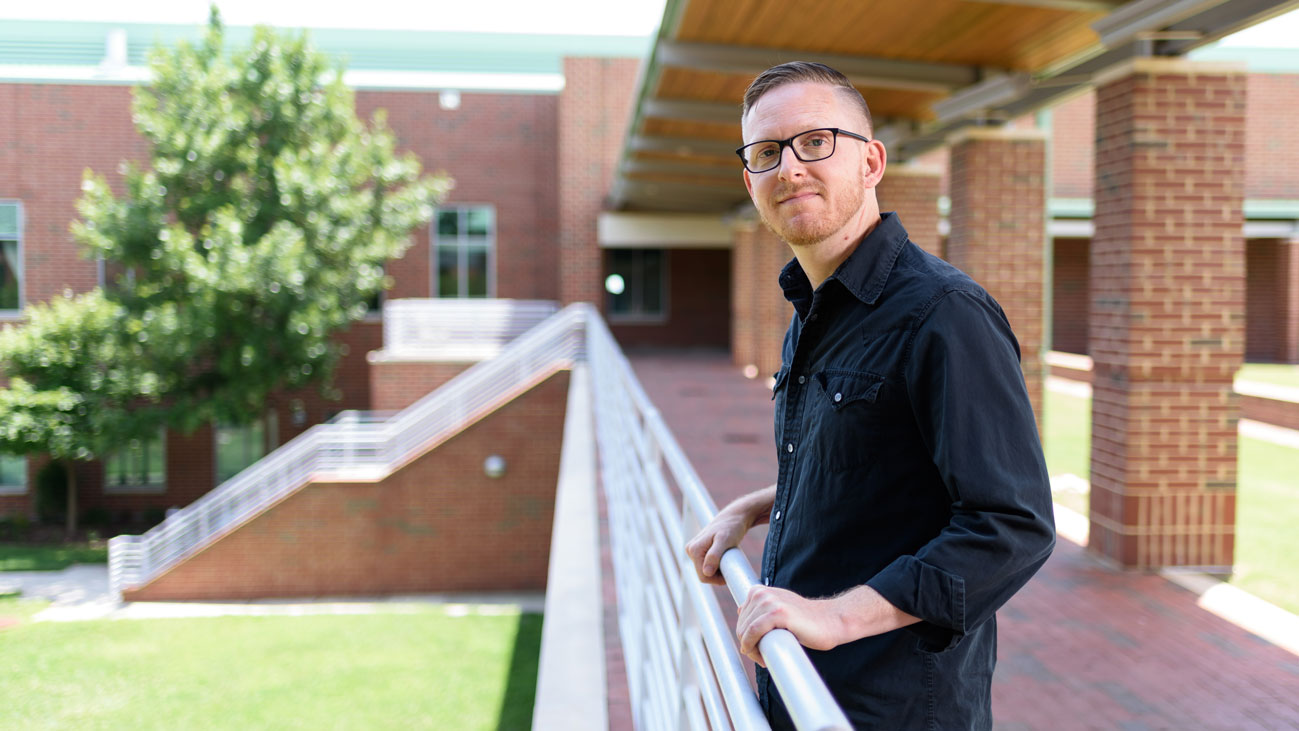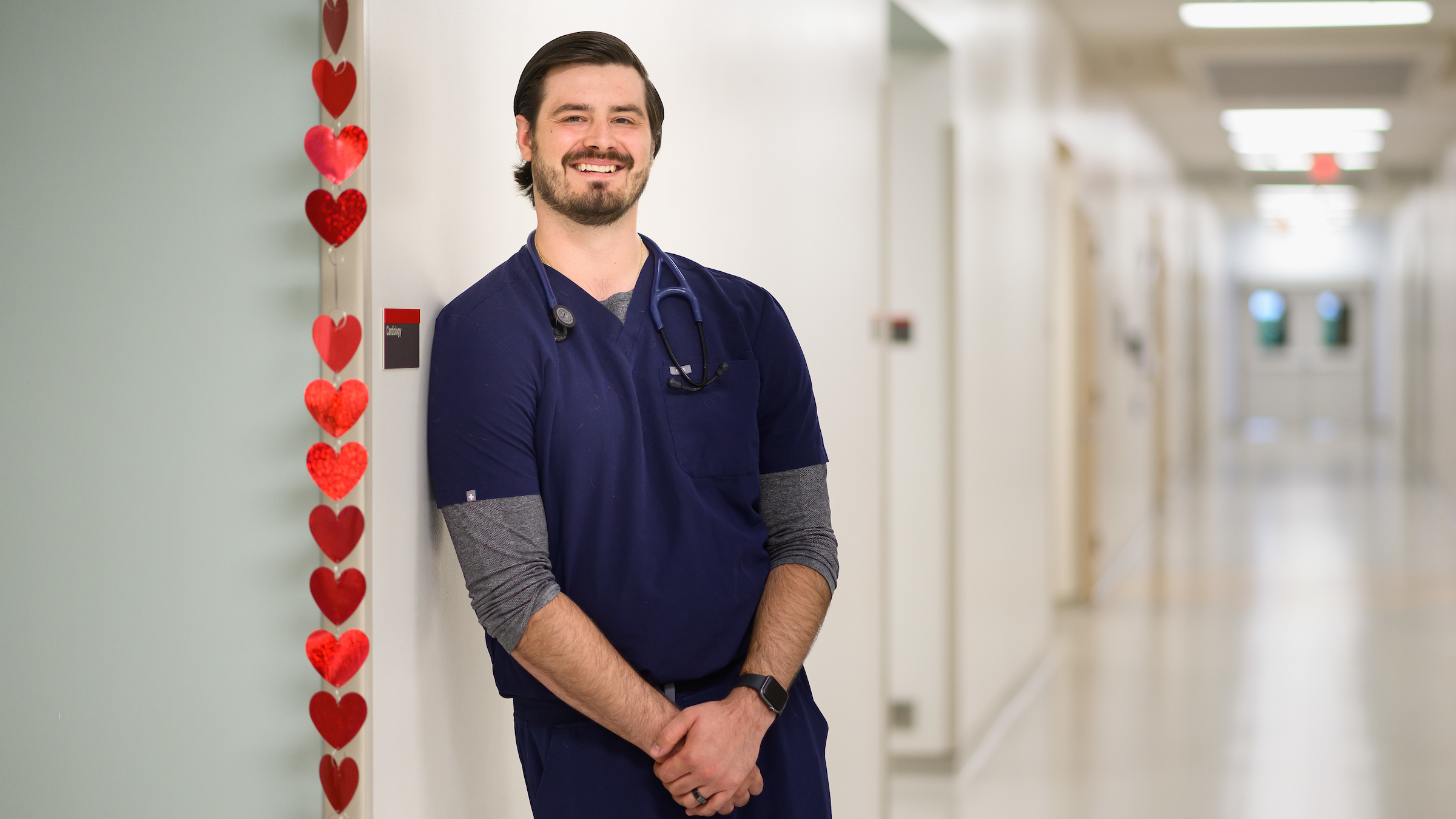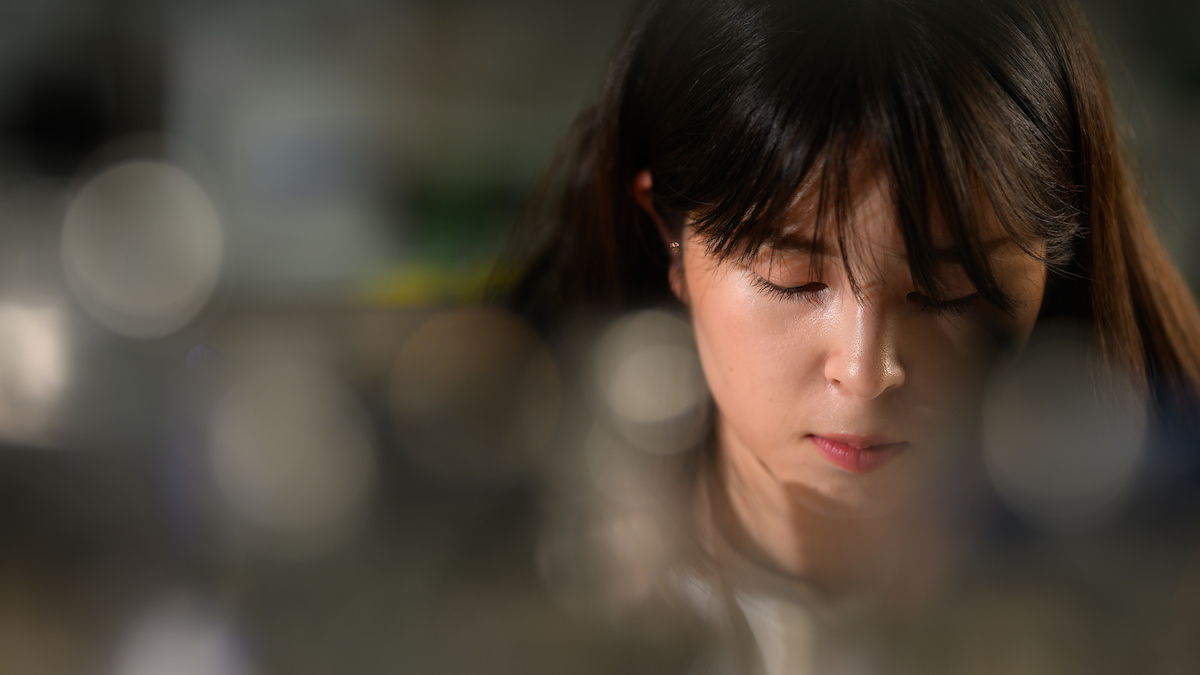Class of 2021: A Risk Worth Taking

It was the best assignment of Tommy Burdette’s Air Force career.
He was working for the Prisoners of War/Missing in Action retrieval office doing historical research, helping to find soldiers who had been missing since World War II. He loved digging through archives, finding maps of forgotten plane wrecks, working to provide answers and closure for families.
Burdette originally planned to be in the military for four years and then get out. But he took to the Air Force, surprising his family, friends and himself. When he enlisted he was something of a hippie, with long hair and a collection of tie-dye T-shirts. A decade later, he was a commissioned Air Force captain, having served for a decade as an intelligence officer and Russian linguist.
But he was itching for something new — and got lucky. The Air Force offered a number of intelligence officers in his Air Force year money to separate from the military, which he could use to go back to school.
Making the shift to veterinary medicine had been on Burdette’s mind for years. On a ferry on the way to an assignment in Alaska, Burdette read a book about an Army veterinarian and it sparked something. He wanted to do work outside of windowless rooms and basements, but was hesitant.
“There’s kind of this moment where you’ve got so much invested in this you don’t want to walk away from it,” he said. “At the same time it’s this moment in life where you have an opportunity that you just can’t pass up. And I’m a little bit of a risk-taker, too. If there’s a little ledge, maybe I need to jump off it and see how it turns out.”
It’s turning out well. After two years in animal sciences program at NC State University — and putting in lots of vet clinic volunteer experiences — Burdette is now one of six students with a military background in the NC State College of Veterinary Medicine’s Class of 2021.
“I’ve already had a couple of moments where I think, man, I’m glad that I’m doing this,” Burdette said. “Even with the day-to-day stress, whenever I have a moment to sit back I feel how rewarding this is now.”
The Mission
There’s a quiet determination in Burdette’s voice. He’s straightforward and honest, with a drive that’s admirable and an approach that’s practical. It was a tough decision to leave the Air Force, and it wasn’t easy going back to undergraduate students in his mid-30s. It’s also a bit nerve-wracking to enter veterinary school at 37, but he’s not dwelling on that.
He’s excited to be here and he’s here to experience as much as he can.
[pullquote color=”orange”]“At that moment, at that one call, you can make a huge difference for that animal but also for the owner of that operation,” he said. [/pullquote]“Hard work is what gets things done,” Burdette said. “It’s about understanding that I’m going to put a lot of time into this and some of it is going to be frustrating. You’re going to have bad days and you’re going to wonder why you’re doing this, but you keep at it. If you really want to succeed in anything, that’s how it’s done.”
Burdette plans on a mixed animal focus at the CVM, reflective of a strong interest in both large animal medicine and ER work. While in the animal sciences program at NC State, he worked with pigs and always enjoyed taking farm calls . “At that moment, at that one call, you can make a huge difference for that animal but also for the owner of that operation,” he said.
As he began school, he also notched veterinary experiences. His first job was walking dogs at the Wake County Animal Center. Later, he starting work at the Veterinary Specialty Hospital of the Carolinas in Raleigh, an experience that has often been challenging.
The first hour of his first shift was particularly brutal. An older boxer was experiencing heart failure and was coughing up blood. Burdette knew looking at the dog that he likely wasn’t going to make it.
“I was expecting to see stuff like that,” Burdette said. “But what I wasn’t expecting was seeing a teenage boy and his dad with him, and they were so broken up. I just remember looking at the ceiling because if I looked at them I would cry.”
He plans to work at the hospital while in vet school, where he wants as broad of an educational experience as possible. That includes exploring work with farm animals and emergency room surgery, but also a feeding a burgeoning interest in infectious disease research. Microbiology was by far his favorite course at NC State.
And then there’s fish.
“I’m a big fish geek,” Burdette said. “I keep three saltwater aquariums in my house. There’s clownfish and rock flower anemones out of the Caribbean. I just love everything about the ocean and reef life.
“At this point, that’s my problem,” he added. “I’m interested in too much.”
Discovering a Passion
Perhaps Burdette should have always known that veterinary medicine would be a good fit.
Growing up in rural Hurricane, W.V. (pronounced Hurri-cun, by the way), he was always interested in biology and creepy-crawlies. He was always that kid in school trying to catch bugs. Once, he kept a black widow spider in a jar and hid it from his parents.
There were other clues. He grew up around his grandparents’ goat farm and his mom bred dogs. But veterinary medicine as a career wasn’t on his mind as he got older. He was far more interested in Russian literature than animals. He found the dark characters of Tolstoy and Dostoevsky particularly alluring.
So when that recruiter came to his house, he told Burdette that if he was interested in foreign languages they would send him to Monterey, Calif., to study at the Defense Language Institute Foreign Language Center, run by the the U.S. Department of Defense.
He took the Air Force oath on January 2, 2001, just nine months before the Sept. 11 terrorist attacks.
“I still remember that morning in Monterey. I was still in bed when the tower got hit. You can imagine what it was like to be on a military base that day,” said Burdette. “We all just wanted to go. We wanted to be put on a plane and go somewhere and do something about it.”
His career was eventful after that. Burdette spent the majority of his time traveling across Russia and Eastern Europe; his diplomatic passport was plastered with 80 stamps in just two years. He spent a few years in Afghanistan and several more groomed as a Russian interpreter at the Defense Department’s Defense Threat Reduction Agency. For a few years he was stationed in Alaska at the North American Aerospace Defense Command, or NORAD.
Burdette will serve as a captain in the reserves at Seymour Johnson Air Force Base near Goldsboro during his CVM studies. Rejoining the military after graduation is Plan A. Military veterinarians usually start out working with Army dogs. Many later specialize in pathology, surgery or work at the U.S. Army Medical Research Institute of Infectious Diseases, studying viruses and stopping outbreaks.
Jumping off that ledge has already been worth it.
“With the ER, it’s not unusual for you to go in for a six-hour shift and you know soon that you’re not leaving at midnight — you’re leaving at 4 in the morning,” said Burdette. “That doesn’t bother me. In my some of my military jobs, that would have driven me crazy.
“It feels like a lot of work, but it feels like a calling and where I belong.”
[highlight color=”gray”] [fa_icon name=”fa fa-newspaper-o fa-fw” size=”1x”] Following the class of 2021:
Our look at Tommy Burdette is the fifth in a series of seven profiles showcasing the diverse, passionate and accomplished minds of the NC State College of Veterinary Medicine Class of 2021.
Head to the CVM news site over the next few months to read more profiles.
[/highlight]
~Jordan Bartel/NC State Veterinary Medicine
- Categories:


